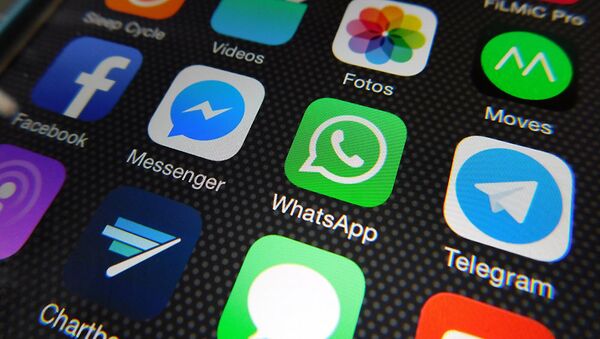The latest report from the Royal United Services Institute (RUSI), 'A Democratic Licence to Operate,' says that many – particularly the newer and smaller – messaging and internet companies are deliberately deleting personal data in an effort to prevent law-enforcement agencies gaining access to it.
Today @RUSI_org publishes the findings of #SurveillanceReview looking at #Privacy #Intelligence post #Snowden http://t.co/K8JmeTIxcF
— RUSI (@RUSI_org) July 14, 2015
The report follows the revelations in 2013 by former CIA contractor Edward Snowden that the UK and US governments were conducting mass surveillance programs. Following the allegations, a series of inquiries were set up in the UK into the extent to which GCHQ and the police were accessing peoples’ emails and internet activity.
Should you be worried about the Snoopers' charter? (It also means FBmessenger and WhatsApp could be banned in the UK) pic.twitter.com/EhkdumPbGZ
— George Aylett (@GeorgeAylett) July 10, 2015
The UK was forced to introduce emergency legislation after a ruling found GCHQ had gathered communications data in breach of articles 8 and 10 of the European Convention on Human Rights (ECHR). Article eight refers to the right to respect for private and family life and article ten protects freedom of expression.
Ban WhatsApp, iMessage and FaceTime?
British Home Secretary Theresa May is set to re-introduce the controversial Draft Communications Data Bill – otherwise known as the Snoopers’ Charter – which will force British internet service providers to keep huge amounts of data on their customers and to make that information available to the government and security services.
I thought the whole point of GCHQ was its codebreakers. Now they want to ban Whatsapp cos it's encoded. Go figure. https://t.co/kfDIYqm9is
— Arthur Snell (@SnellArthur) July 10, 2015
However, the RUSI report found that "often, smaller, internet companies are less comfortable with co-operating with law-enforcement agencies. Some are keen to ensure the online anonymity of their customers, and therefore do not retain data that could be passed to law enforcement; others are keen to first notify the customer that a law-enforcement agency has requested their data."
So apparently Cameron is trying to ban whatsapp in the UK because he can't trace conversations on there ���� pic.twitter.com/Ucz6vgAHDy
— Phill Morley (@phillmorley) July 10, 2015
The report does not name the companies involved, but SnapChat, WhatsApp, Telegram, Kik have become increasingly popular in recent times and are known to be keen to protect user data. The UK Government has threatened to ban apps that encrypt their data, such as WhatsApp, Apple's iMessage and FaceTime.
Outdated Snooping Laws
The report was critical of the complicated and often outdated laws in the UK regulating mass surveillance. It said: "We have seen evidence that the present legal framework authorizing the interception of communications is unclear, has not kept pace with developments in communications technology, and does not serve either the government or members of the public satisfactorily."
"The state should always be reluctant to invade the privacy of its citizens in an open society; it should never be a matter of routine. Intrusion into the privacy of the citizen is something about which the secret part of the state should rightly feel unease."
The report recommends that GCHQ and the police should only be able to gain access to peoples’ emails and internet activity after submitting a warrant request to the Home Secretary, which can then be reviewed by a senior judge.



